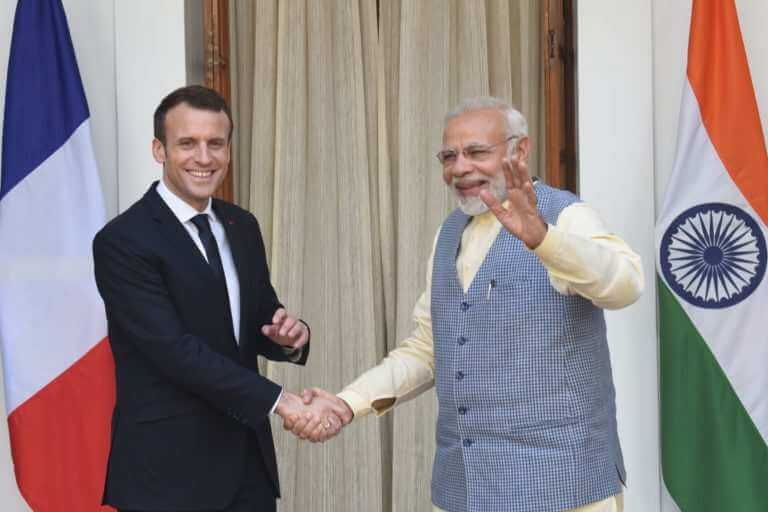French President Emmanuel Macron announced his decision to appoint an envoy to the Indo-Pacific region. Christoph Penot, who will primarily focus on bolstering cooperation with India, has previously served as an envoy to Australia. He will be responsible for spearheading initiatives like the trilateral dialogue between India, France and Australia, which was held earlier in September. He will also work towards strengthening multilateralism and increasing cooperation in the region.
A senior official said, “In his new capacity, he’ll pay special attention to cooperation with India as a foremost strategic partner in the region with a view to implement the 2018 joint vision on the Indo-Pacific adopted by President Macron and Prime Minister Modi.” The 2018 “Joint Strategic Vision” recognised the significance of India’s partnership with France and was signed with the aim of “ensuring peace, security and stability in, and in bringing robust economic growth and prosperity to the Region.”
Experts believe that this move is France’s attempt to voice its opposition to China’s aggressive actions in the region. Officials of the Macron administration have also opposed China’s military presence at the Hambantota port in Sri Lanka, Gwadar port in Pakistan, and in Djibouti, which they believe to be detrimental to French security interests in the Indian Ocean. However, there are other motivations that guide Macron’s decision. For instance, 93% of France’s Exclusive Economic Zone is situated in the Indo-Pacific, and the region’s islands also house over 1.5 million French citizens and 8,000 French troops.
Last month, Germany, too, decided to strengthen its presence and partnerships in the Indo-Pacific with the aim of furthering the rule of law. Heiko Maas, Germany’s Foreign Minister said, “We want to help shape (the future global order) so that it is based on rules and international cooperation, not on the law of the strong. That is why we have intensified cooperation with those countries that share our democratic and liberal values.” India, Japan, and Australia came out in support of Germany’s decision. This was seen as a major blow to China, who was previously the central element for Germany’s diplomacy in Asia.
Following several human rights concerns raised by the international community, specifically regarding Beijing’s treatment of Uighur Muslims and the National Security Law introduced in Hong Kong, the European Union, too, has been stepping back in its previously flourishing partnership with China. Further, Germany and France have been pressurising the EU to adopt a bloc-wide strategy for the Indo-Pacific.
France, Germany Boost Diplomatic and Strategic Ties in Indo-Pacific
On Wednesday, France appointed Christoph Penot as the envoy to the Indo-Pacific region. He will be responsible for strengthening multilateralism and increasing cooperation in the region.
October 15, 2020

Indian Prime Minister Narendra Modi and French President Emmanuel Macron during their 2018 meeting on the Joint Strategic Vision of India-France Cooperation in the Indian Ocean Region. SOURCE: TOI
